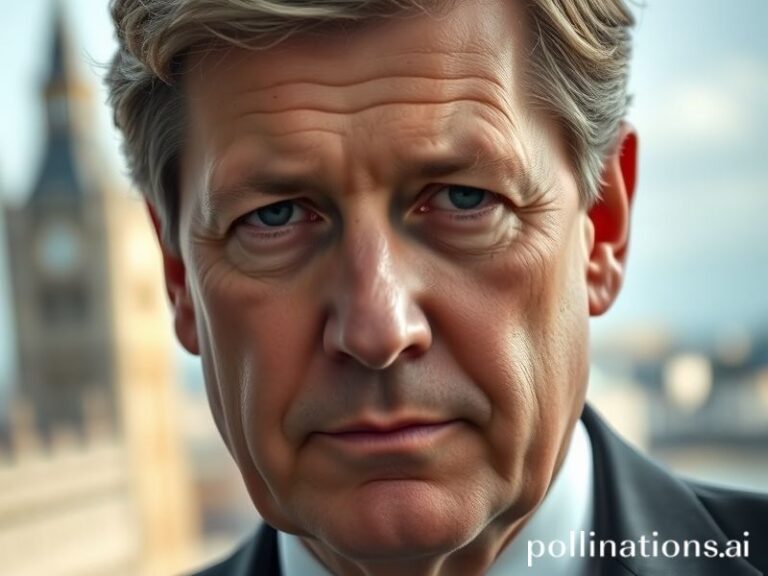Lewis Capaldi’s Hyde Park Concert Unites World’s Heartbroken in Spectacular Display of Globalized Grief
**Lewis Capaldi at Hyde Park: A Global Gathering of the Emotionally Exhausted**
Lewis Capaldi’s recent Hyde Park performance wasn’t just another concert—it was a planetary summit of the perpetually heartbroken, a United Nations of romantic disappointment where delegates arrived armed with tissues rather than briefcases. While the Scottish singer-songwriter belted out his signature melancholic anthems to 65,000 souls, one couldn’t help but notice the international flavor of despair wafting through London’s royal park like expensive perfume mixed with cheaper coping mechanisms.
The crowd represented a veritable atlas of human disappointment: Brazilian students nursing their first heartbreaks, Japanese salarymen weeping quietly into their overpriced lagers, German tourists methodically documenting their emotional breakdowns for future reference. It was globalization at its most therapeutic—or most masochistic, depending on your perspective on paying £90 to publicly sob with strangers.
From an international standpoint, Capaldi’s Hyde Park spectacle reveals something rather touching about our species: we’ve managed to industrialize heartbreak and export it worldwide with remarkable efficiency. While previous generations had to content themselves with local folk songs and the occasional dramatic reading of poorly-written love letters, today’s emotionally devastated can access a entire catalog of professionally-produced anthems specifically engineered to trigger waterworks. It’s free-market capitalism meets free-flowing tears—a match made in demographic heaven.
The economic implications are staggering. Airlines reported increased bookings to London from emotionally vulnerable twenty-somethings across six continents. Local tissue sales spiked 400%. Therapists worldwide noted a suspicious decrease in Tuesday appointments as their clients opted for group catharsis instead of individual breakthroughs. One might cynically observe that we’ve successfully monetized millennial anxiety—though at least nobody’s selling NFTs of Capaldi’s tears. Yet.
What’s particularly fascinating is how Capaldi’s particular brand of Scottish melancholy has achieved what centuries of diplomatic efforts couldn’t: genuine international unity. When 65,000 people from dozens of countries simultaneously wail “Someone You Loved,” borders become meaningless, visa restrictions dissolve, and we’re all just humans united in our spectacular ability to ruin perfectly good relationships. It’s enough to make even the most hardened UN bureaucrat shed a tear—though probably more from envy at such effective crowd mobilization than from genuine emotional connection.
The environmental impact deserves mention too. Scientists calculate that the collective salt content from Hyde Park tears could have de-iced several major highways, though unfortunately, this renewable resource remains untapped. Meanwhile, the carbon footprint of international fans flying in to experience premium sadness raises questions about whether we’re willing to destroy the planet to feel better about destroying our relationships. Spoiler alert: we absolutely are.
As the final notes faded and 65,000 emotionally cleansed individuals stumbled back into the London night, one thing became crystal clear: in an era of political polarization, economic uncertainty, and climate anxiety, we’ve found our universal language. It’s not love, as the Beatles suggested, but rather the exquisite pain of love’s aftermath, set to a catchy four-chord progression and delivered by a charmingly self-deprecating Scotsman who looks like he understands our pain because he absolutely does—he’s probably causing some of it.
The world may be burning, democracy might be crumbling, and our Instagram feeds increasingly resemble digital obituaries for the lives we thought we’d have. But for one glorious evening in Hyde Park, we came together as one species, united in our shared talent for making spectacularly poor romantic choices. And really, isn’t that what globalization was always meant to achieve?







